Amid Europe's ongoing efforts to integrate refugees and asylum seekers effectively, a transnational initiative is committed to preventing radicalisation through successful social inclusion. The project leverages a comprehensive approach involving law enforcement and community training, to foster a sustainable environment where they can integrate and contribute positively to their new communities.
As Europe continues to face the complexities of refugee influxes, the challenges of integration and radicalisation remain at the forefront of societal concerns. Addressing these issues requires more than just meeting immediate needs; it demands a long-term commitment to supporting refugees and asylum seekers in their new environments.
The IN2PREV project addresses these challenges head-on by equipping frontline practitioners – ranging from non-governmental organisations (NGOs) to law enforcement agencies (LEAs) – with the tools and knowledge necessary for effective intervention. The project’s innovative strategies and collaborative efforts are pivotal in building resilient communities that can withstand and mitigate the risks of radicalisation.
During IN2PREV’s 4th Steering Committee Meeting (SCM), held online on May 14th and 15th, 2024, significant progress was made in achieving these objectives. Namely, the meeting discussed the Frontline Extremism Vulnerability Risk–Structured Evaluation Screening (FEVR-SES) tool. This tool represents a breakthrough in assessing vulnerabilities related to radicalisation among refugees and asylum seekers. Throughout the SCM, the project team focused on efforts to fine-tune and disseminate the tool, incorporating feedback from experts to maximise its effectiveness.
Another cornerstone of the IN2PREV project discussed at the meeting was the finalisation of and preparation for the dissemination of IN2PREV’s Mentoring Approach for Refugees and Asylum Seekers’ Successful Inclusion. This innovative scheme is designed to foster vital collaboration between public entities, such as law enforcement agencies, community organisations, and representatives of refugees and asylum seekers. The approach is tailored to each national context, aiming to establish effective accompaniment and inclusion strategies that address the unique challenges faced during the integration process.
By enhancing the competencies of frontline practitioners, the project ensures that these professionals are well-equipped to support individuals and mitigate any initially screened vulnerability risk factors through longitudinal and cross-sectoral interventions.
The meeting also highlighted significant strides in IN2PREV’s training initiatives aimed at capacitating frontline professionals. These training courses are crucial in equipping personnel from LEAs and NGOs with the necessary skills to tackle the challenges they face on the ground.
While the e-Learning ‘Train the Trainer’ course for LEAs and NGOs has already been completed, the project is now rolling out two additional b-Learning courses. These courses are focused on ‘Preventing and identifying vulnerability factors to radicalisation in refugees and asylum seekers’ for LEAs, and ‘Facilitating refugees and asylum seekers’ integration through mentoring’ for NGOs. These educational efforts are pivotal in ensuring that practitioners are not only well-informed but also effectively prepared to implement the strategies and tools developed through the IN2PREV project.
As the 4th Steering Committee Meeting concluded, it was evident that the IN2PREV project continues to make significant strides toward its overarching goals of preventing radicalisation and ensuring the successful integration of refugees and asylum seekers in European societies. The collaborative efforts among LEAs, NGOs, and community organisations across multiple nations demonstrate a robust model of international cooperation and shared responsibility.
As IN2PREV moves into its next phases, the focus will shift towards the practical application of the developed tools and strategies, aiming to directly impact the lives of those at risk and the communities that welcome them.
Learn more about this project
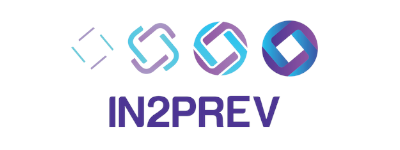
IN2PREV
Law enforcement and community cooperation and training approach to prevent radicalisation by ensuring refugees’ successful inclusion
The IN2PREV project Consortium is coordinated by BSAFE LAB – University of Beira Interior (Portugal) and partnered by IPS_Innovative Prison Systems (Portugal), the Polish Platform for Homeland Security (Poland), the Euro-Arab Foundation for Higher Studies (Spain), the European Association for Social Innovation (Romania), the Academy of Police Force in Bratislava (Slovakia), the Center for Security Studies (Bosnia and Herzegovina), the General Police Inspectorate of the Ministry of Internal Affairs (Moldova), and the Bureau of Migration and Asylum (Moldova).
For more information on the IN2PREV project, please visit its website.
Related projects

SafeBorders
Strengthening Judicial expertise and Frontline support to combat Child Trafficking

KOBAN
Identifying future capabilities for Community Policing

DIGIDEM
Fostering Digital Democracy and Citizenship in Higher Education

WAYOUT
Integrated Exit Programme for Prisons and Probation

VicTory
Restorative and victim-centred approach to mitigate hate and (violent) extremism
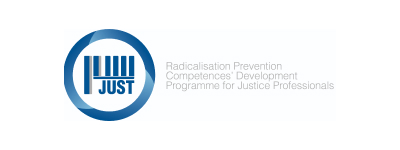
R4JUST
Radicalisation Prevention Competences’ Development Programme for Justice Professionals

SHIELDed
Safeguarding symbolic places of personal and religious development and freedom in Europe through a multi-stakeholder approach.
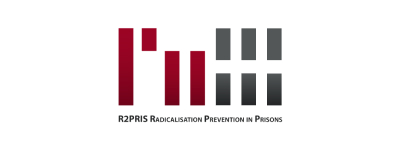
R2PRIS
Radicalisation Prevention in Prisons

COOPERHATE
Delivering a comprehensive approach to preventing, reporting, investigating and prosecuting hate crime and hate speech-related incidents in Portugal

PRACTICIES
Partnership against Radicalisation in Cities
Related news

IPS has joined a new partnership focused on enhancing the prevention, reporting, and investigation of hate crimes and hate speech in Portugal
Read More »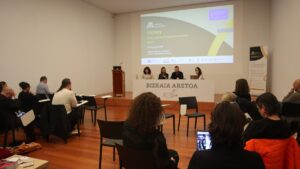
Presenting resources for victims and practitioners at European meeting on responses to hate-motivated harm
Read More »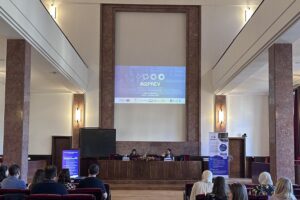
IN2PREV Final Conference highlights cross-sector collaboration for refugee inclusion and radicalisation prevention
Read More »
Standing united against hate: A national effort to prevent and tackle hate crime and hate speech in Portugal
Read More »



